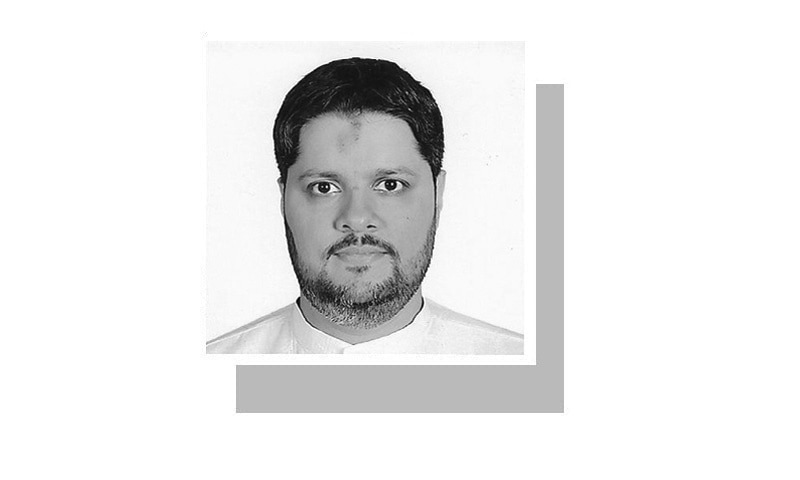By Qasim A. Moini Ustad Murtaza Mutahhari
OFTEN during the period of mourning in Muharram and Safar, some take umbrage at the fact that ‘political’ issues are brought up during majalis. This view suggests that one should keep mourning and other religious matters separate from what is happening around us and in the world, and simply concentrate on historical events, and the virtues of religious figures, or fazail.
Proponents of this view feel that religious events are to be attended, and rituals followed, only to obtain sawab (spiritual benefits), and secure a decent place in the afterlife. There can be no denying the importance of narrating historical events, as well as the fazail of revered figures. However, while from the religious viewpoint gathering sawab for the next world is essential, were these the sole aims of Imam Husain’s immense sacrifice that people around the world commemorate on Ashura? Let us see what the Imam himself says about the matter.
In a well-known will to his brother Mohammad Hanafiya, as quoted by Ustad Murtaza Mutahhari, when Imam Husain was leaving Madina, he said his intent was to “reform the community of my grandfather”, the Holy Prophet (PBUH). Now arguably this effort at reform was not restricted to the seventh century: Imam Husain’s sacrifice is an inspiration for reform and revolution across the ages, and indeed an invitation to all free peoples of the world to change their circumstances. Therefore, the concept of ‘render unto Caesar what is Caesar’s, and unto God what is God’s’ is certainly not Islamic, or Husaini. Anyone who is inspired or moved by what occurred in Karbala in 61 AH cannot but raise their voice against oppression and injustice, and in defence of the weak and the downtrodden.
The Holy Quran lays particular emphasis on justice at several places; and Imam Husain being a most eloquent interpreter of the Holy Book let it be known to all that his movement was about justice. In the khutba (sermon) at Mina, Imam Husain states that his campaign was to “reform the affairs of Your [God’s] land, to protect and secure the indisputable rights of Your oppressed servants. …” This is a clarion call for reform and political awakening, shaking people out of their slumber. The Umayyad government knew that the Imam was admonishing the Muslim masses, as well as the elite, to resist oppression, and to rise up for justice. That is why it dispatched legions to corner and confront his small, fearless band in the burning desert of Karbala. As we all know, Imam Husain refused to compromise with tyranny, and gave all he had with dignity and unmatched valour.
We must learn from Imam Husain how to reject oppression.
Today, Muslim societies, including our own, as well as societies of various faiths, are in dire need of Imam Husain’s message of reform and awakening. Do the suffocating conditions of today not mirror those during the Imam’s era? People fear speaking their minds, lest the powerful make examples of them. Hatred, bigotry and injustice are commonplace, with the weak and the poor living in fear, while the arrogant and the ignorant sit at the top of society’s pyramid. People of knowledge are hounded, while the devious and the cruel are considered objects of emulation. Fourteen centuries ago, similarly baneful conditions afflicted the Islamic world, and Imam Husain, with unmatched courage, raised the banner of resistance against the status quo.
The situation beyond our borders is even more pitiful, nowhere more so than in the killing fields of Gaza. In this hapless little strip of land, Zionist troops, seemingly aping the barbaric methods of the Umayyad ho-r-des in Kar-bala, starve and murder inn-o–cent women and children. Then, as in 61 AH, the world watches the massacre without lifting a finger. Els-ewhere, Zionist forces threaten and murder innocents across the Middle East, again echoing the Yazidi philosophy of ‘might is right’. Meanwhile, the Muslim world watches meekly as one after another of its fraternity is threatened by the powers of global arrogance.
In all these situations, we must learn from Imam Husain how to live with dignity and reject oppression. In fact, azadari (mourning) is a massive protest movement against oppression and tyranny in all their forms. As the Holy Prophet said, Husain is the Safina-tun-Nijaat (Ark of Salvation). Individuals, societies and states must learn how to live with courage, and how to defend principles in the face of even the greatest odds, from Imam Husain.
So next time we hear a reciter, poet or orator raise these issues during Muharram and Safar, we must not accuse them of mixing ‘politics’ with a purely religious matter. These individuals are simply repeating the lesson Imam Husain taught us 14 centuries ago: that to live under oppression is unbearable, and that tyranny must be resisted, no matter the cost.
The writer is a member of staff.
Published in Dawn, July 6th, 2025
